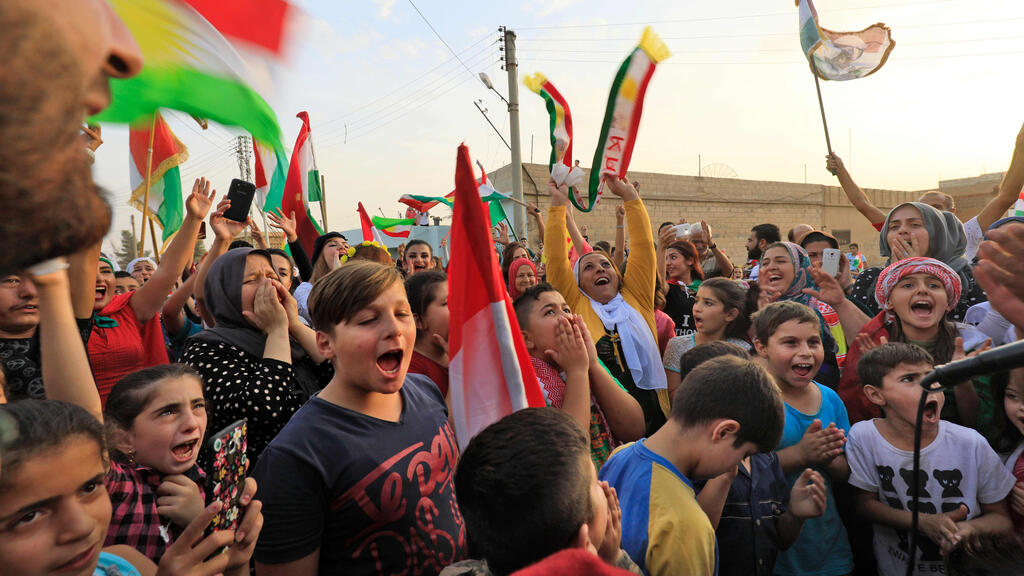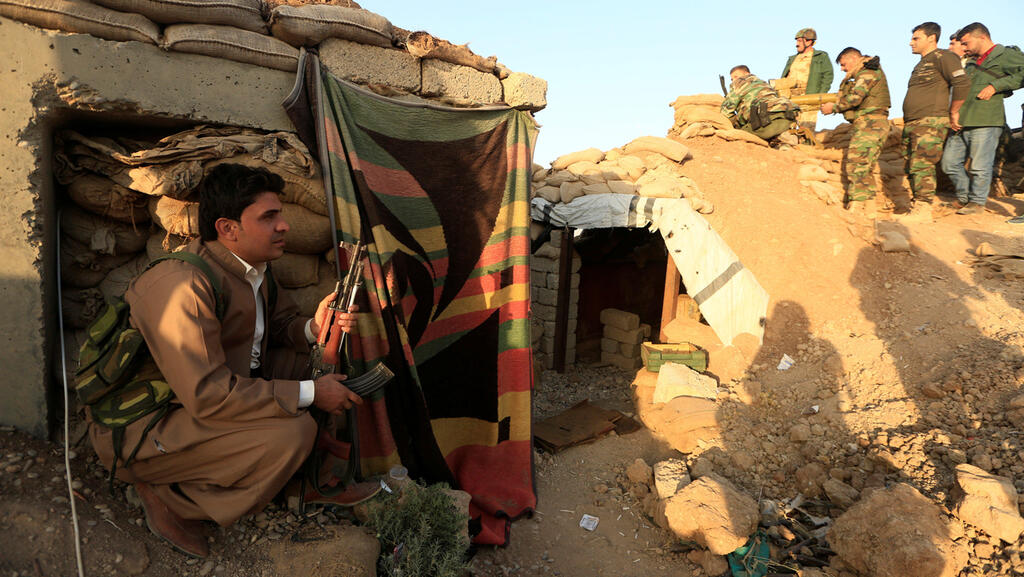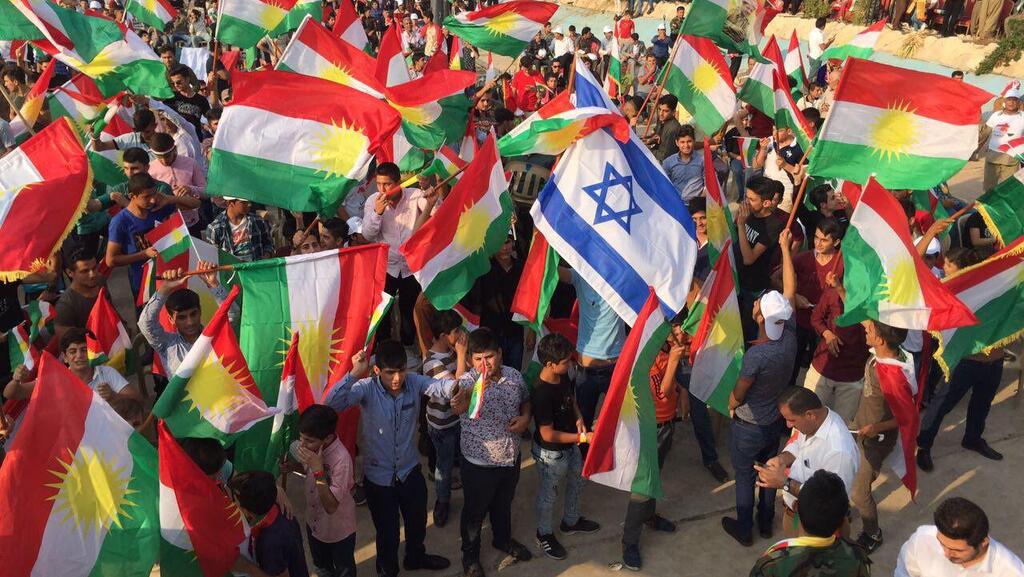The Iraqi parliament late last month passed a law that criminalizes any relationship with Israel. The law makes illegal any attempt of any Iraqi citizen, company or institution to normalize ties with Israeli citizens, companies, or institutions. But the law does not represent the feelings of all Iraqis, analysts say.
The bill was proposed by Muqtada al-Sadr, a Shiite cleric and politician who belongs to a Shiite Muslim political party that opposes ties with the United States and Israel.
Breaking the law by attempting any kind of normalization with Israel or Israelis is punishable in Iraq with imprisonment or even the death penalty.
Some 275 out of 329 members of the Iraqi parliament voted in favor of the law, titled “Criminalizing Normalization and Establishment of Relations with the Zionist Entity.”
Al-Sadr described on Twitter the approval of the law as a “great achievement” and called on the Iraqi people to celebrate it. Later, hundreds took to the streets and chanted anti-Israel slogans.
The Iraqi parliament stated that this law is a “true reflection of the will of the people.” But, Iraqi researcher and political observer Aaso Ameen Shwan disagrees.
Shwan said that, based on the low turnout and boycott of the latest elections by the Iraqi people, it is questionable whether the parliament which issued the law is representative of the population.
“This may mean the law does not necessarily represent the wider community’s perspective. One thing for sure is that the Kurds would not agree with such a law,” he said.
Kali Kareem, a Kurdish analyst of the Middle East and North Africa, said that the law is probably supported by the majority of the Iraqi population.
She explained that approximately 69% of Iraqis are Shia Muslims and are likely to be under the influence of Iran. In addition to Shia Muslims, she added, the majority of Sunnis also do not approve of ties with Israel.
A source that works with the Kurdistan Regional Government (KRG) stressed that the law does not represent the Iraqi population as a whole, suggesting that the Kurds, who are also part of the population, do not agree with it.
The Kurdistan Regional Government is the official executive body of the autonomous Kurdistan Region of northern Iraq.
The KRG source claimed that the current Iraqi government, which has been controlled by the Shias since the ousting of Saddam Hussein with the US invasion in 2003, is more representative of the outlook of Iran rather than the Iraqi people.
“In the Kurdistan region we have good relations with Israel,” he said.
Shwan believes that the timing of the law has to do with the recent normalization of relations between some Arab countries and Israel.
“I think this was a reaction against the recent normalization trend in the region which had some actors in Iraq accused of leaning towards as well,” he said.
Kareem added that the recent Saudi Arabia-Israel-Egypt Red Sea island negotiations indicate that Saudi-Israel relations are improving.
She says that the normalization of ties between the United Arab Emirates and Israel has brought benefits to both countries and millions of dollars have been spent on economic and industrial agreements.
“Many people in the Middle East are now aware of the opportunities and benefits that come with normalization, and how it can improve a country’s economy and its technological developments,” she said.
Therefore, Kareem continued, “the Iraqi government, being under Iran’s influence, fears these activities between Israel and its neighboring countries. They do not want the public’s opinion on the subject to change.”
The law banning normalization with Israel comes a few months after a conference to promote such normalization was held in the Iraqi autonomous region of Kurdistan, in September 2021.
Shwan believes that the Kurds would not oppose normalizing ties with Israel.
“I would say that the Kurds in Iraq, despite their sympathy with the Palestinian issue, may be open to establishing ties with Israel as with any other country in the region,” he said.
He notes that the Iranian influence in Iraq has played a significant role through its local allies to block any potential moves in that direction.
The Iraqi Kurds have a long-standing relationship with Israel that will not change because of the new law, according to the KRG source.
“Kurds see Israel as their ally and value their historic ties. The law does not represent the majority of Kurds,” Kareem added.
Eliezer (Geizi) Tzafrir, a former senior official in the Shin Bet, or Israel Security Agency, and the Mossad, recalled a Mossad mission in Kurdistan in which he took part during the ‘60s and ‘70s.
“We had a Mossad mission in Kurdistan from 1965-1975, in which we helped the Kurds by supplying them with the weapons that we could find, and help them train their officers and commanders,” he said.
He spoke nostalgically of the Kurds that still remember the presence of big Jewish communities in the area.
Today there are still about 40 Jewish families that live in the Kurdish area of Iraq. Their congregation, named the Aramaic Organization, is recognized by the Kurdistan Regional Government (KRG) and members of the Jewish community work with the KRG.
As for an Israeli presence and cooperation with Kurdistan today, Kareem said that there is no official knowledge of such activity.
She added that “with this law, they are aiming to suppress any rumored or potential activities between the Kurdistan Regional Government and Israel.”







